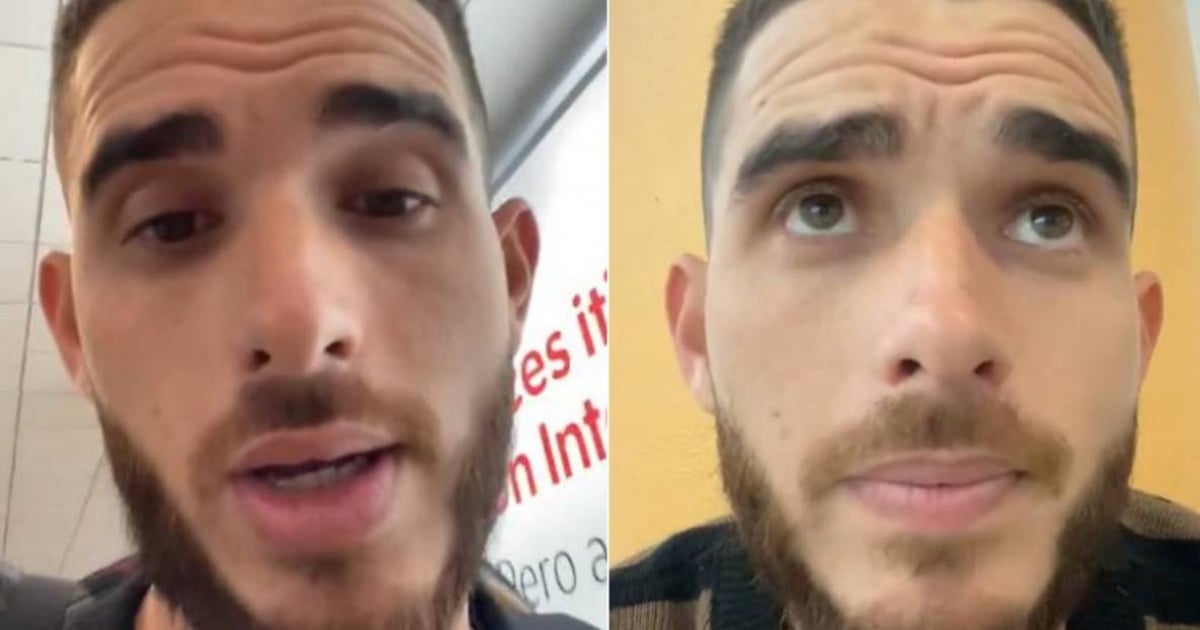
The young Cuban activist Leandro René Hernández Ibarra is in a migratory limbo and has been sleeping in the Duty Free area of Lima's Jorge Chávez Airport for four days because the Nicaraguan government denied him entry to its territory.
Hernández attributes Nicaragua's decision to the influence of the Cuban regime, as this young man is known for his outspoken stance against the island's government.
The activist had all his documents in order, his accommodation reservations in Managua, his flight back to Cuba, but he was not allowed to complete his journey to Nicaragua.
The situation forced him to stay in the Duty Free area of Lima airport, where he has been for four days. Due to the airlines' refusal to take him to another destination after being stranded for many days, he had to request political asylum in Peru and is now awaiting a response from the authorities in the Andean country.
Leandro cannot return to Cuba due to the potential political reprisals against him. He reported threats and persecution by State Security, including fines and harassment directed at his family.
He is not the first activist to find himself in a migratory limbo due to the government's refusal in Nicaragua. This case highlights the challenges faced by Cuban dissidents as they attempt to escape the regime's grip, which has now extended to other countries in the region.
Hernández is awaiting a response from the Peruvian authorities while his situation remains uncertain, and his money to survive is running out at the Duty Free of an airport where he was only supposed to make a short stop.
Frequently Asked Questions about the Case of Cuban Activists Stranded at Airports
Why is Leandro René Hernández Ibarra stranded at the airport in Lima?
Leandro René Hernández Ibarra is stranded at Lima airport because the Nicaraguan government denied him entry to its territory. This rejection is due to his well-known dissenting stance against the Cuban regime.
What actions has Leandro taken to address his situation in Peru?
Due to the impossibility of continuing his journey or returning to Cuba, Leandro has requested political asylum in Peru and is now awaiting a response from the Peruvian authorities while he remains at Lima's Jorge Chávez Airport.
Why did the Nicaraguan government deny entry to Cuban activists like Hernández?
The Nicaraguan government, a close ally of the Cuban regime, denies entry to dissident Cuban activists in an effort to support Havana's attempt to control and suppress those who oppose its policies. This situation reflects the influence of the Cuban government over some of its allies in the region.
What risks does Leandro face if he returns to Cuba?
If Leandro returns to Cuba, he faces potential political reprisals due to his activism and critical stance against the regime. He has reported threats and persecution from the Cuban State Security, which puts his safety and that of his family at risk.
Are there other similar cases of Cubans stranded in airports for political reasons?
Yes, there are other similar cases, such as that of the Cuban journalist Enrique Díaz Rodríguez and his family, who also found themselves stranded at the airport in Lima after Nicaragua denied them entry. These cases highlight a pattern of repression against Cuban dissidents seeking to escape the regime's control.
Filed under: